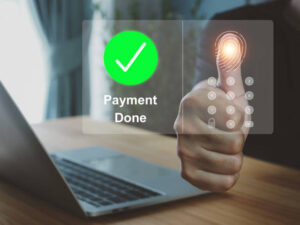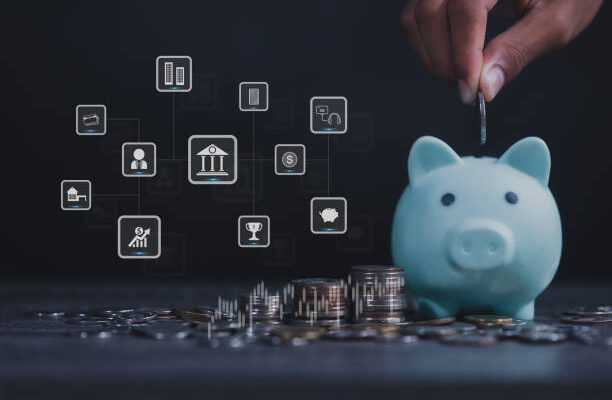In today’s fast-paced, digitally-driven world, managing one’s finances has never been easier, thanks to the proliferation of personal finance apps. These digital tools have transformed the way people budget, save, invest, and track their financial goals. With the touch of a screen, individuals can now take control of their financial futures. In this article, we will explore the evolution and impact of personal finance apps, highlighting their benefits, features, and the factors to consider when choosing the right one for your needs.
The Evolution of Personal Finance Apps
 (Photo from iStock)
(Photo from iStock)
Personal finance apps have come a long way since the first digital calculators and spreadsheets. The evolution of these apps can be broken down into several key phases:
- Early Financial Calculators: Before the era of smartphones and personal computers, people relied on basic financial calculators to perform basic arithmetic calculations like budgeting and simple savings projections.
- Spreadsheet Software: With the advent of personal computers, spreadsheet software like Microsoft Excel allowed users to create more sophisticated financial models and budgets.
- First-Generation Personal Finance Software: In the late 1980s and 1990s, personal finance software like Quicken and Microsoft Money emerged. These programs offered more comprehensive financial tracking and budgeting tools, though they were still tethered to desktop computers.
- The Rise of Web-Based Tools: The 2000s saw the emergence of web-based personal finance tools, such as Mint and Personal Capital, which allowed users to track their finances from any device with an internet connection. These services offered real-time account syncing, categorization of expenses, and basic budgeting features.
- The Era of Mobile Apps: The proliferation of smartphones marked a significant shift in personal finance management. By the early 2010s, mobile apps like YNAB (You Need A Budget), Acorns, and Robinhood had begun to reshape the landscape. Users could access their financial data and perform transactions on the go.
Key Benefits of Personal Finance Apps
 (Photo from iStock)
(Photo from iStock)
- Convenience and Accessibility: One of the primary advantages of personal finance apps is the convenience they offer. Users can access their financial information at any time, from anywhere with an internet connection. This convenience enables real-time monitoring and decision-making, contributing to better financial habits.
- Goal Setting and Tracking: Personal finance apps enable users to set financial goals, such as saving for a vacation, paying off debt, or building an emergency fund. They track your progress and offer guidance on how to achieve those goals.
- Expense Tracking: Keeping track of expenses is essential for managing one’s finances effectively. These apps make it easy to see where your money is going, helping you identify areas where you can cut back and save.
- Investment Management: Some personal finance apps, like Robinhood, Acorns, and Stash, offer investment management services. Users can invest in stocks, bonds, and other assets through these platforms. They often feature educational resources and tools to help users make informed investment decisions.
- Debt Management: Apps like Credit Karma and Mint offer tools to manage and monitor debt, including credit card balances, loans, and mortgages. They help you create a strategy to pay down your debts efficiently.
Factors to Consider When Choosing a Personal Finance App
 (Photo from iStock)
(Photo from iStock)
With the plethora of personal finance apps available, selecting the right one can be a daunting task. Consider the following factors to make an informed choice:
- Data Security: Ensure the app uses encryption and strong security measures to protect your financial information. Read user reviews and check if the app complies with industry standards for data protection.
- Cost: Some personal finance apps are free, while others come with subscription fees or transaction charges. Understand the pricing structure and assess if it aligns with your budget.
- Device Compatibility: Ensure the app is compatible with your devices, whether you use iOS, Android, or both. Cross-platform functionality is a plus.
- Integration: If you already use other financial services or apps, consider whether the new app integrates with your existing accounts. This can streamline your financial management.
- Customer Support: In case you encounter issues, it’s important to have reliable customer support to turn to for assistance. Check if the app offers responsive customer service channels.
- Reviews and Reputation: Read user reviews and check the app’s reputation in the financial industry. A well-established and well-reviewed app is more likely to meet your needs.
- Privacy Policy: Read the app’s privacy policy to understand how your data will be used and whether it will be shared with third parties.
Notable Personal Finance Apps
 (Photo from iStock)
(Photo from iStock)
- Mint: Mint, owned by Intuit, is one of the most popular personal finance apps. It offers budget tracking, expense categorization, investment monitoring, and credit score tracking. It’s known for its user-friendly interface and is free to use.
- You Need A Budget (YNAB): YNAB is a budgeting-focused app that follows a zero-based budgeting approach. It helps users allocate every dollar to a specific purpose and offers financial education and support.
- Personal Capital: This app provides a holistic view of your financial life, including investment tracking, retirement planning, and net worth analysis. It’s particularly useful for those with complex financial portfolios.
- Acorns: Acorns is an investment app with a unique twist. It rounds up your everyday purchases to the nearest dollar and invests the spare change in a diversified portfolio. It’s a great way to start investing with small amounts.
- Robinhood: Robinhood is a commission-free stock trading app. It’s known for its easy-to-use interface and is a good choice for those interested in DIY investing.
- Stash: Stash is an investment app that focuses on education and long-term investing. It offers a variety of themed ETFs (exchange-traded funds) to help users build portfolios.
Conclusion
Personal finance apps have transformed the way we manage our money. These tools have made budgeting, saving easy. However, it’s important to choose personal finance apps wisely, considering factors like features, data security, and reputation.
As personal finance apps continue to evolve, we can expect even more sophisticated features, further enhancing our ability to manage our finances effectively. With the right app and a commitment to financial literacy, individuals can achieve greater financial stability and make informed decisions about their money in the digital age.
Reference:
Making your home fireproof is important, searching for some effective tips?, your wait is over click on the link below:
Tips to make your home fireproof




